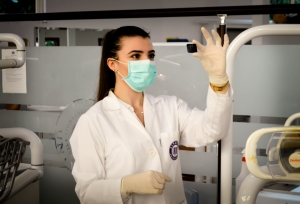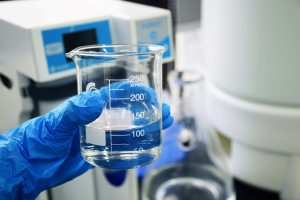Ace Organic Chemistry Online
-- The Smart Way
Discover the ultimate learning experience, with no risk. Organic chemistry online is fast and easy.
Join Nowyour Ultimate Study Companion
Comprehensive Materials
Hundreds of hours of organic chemistry online: videos, flash cards, practice exams, and much more.
Personalized Guidance
Weekly emails from your chemistry Sherpa tell you what to study and where to find it.
Flexible and Accessible
Study anytime, anywhere on any device when you want to do it. Complete flexibility in your studies.
Money Back Guarantees
Not happy? Cancel anytime, keep the eBooks and the study guides. Don't pass? We will give you a full refund.
Rich Content
In-depth movies, eBooks, review videos, flash cards, study guides, mini-course and much more.
Ongoing Support
24/7 help to ensure your success. We are here to help you, anytime, anywhere. Just reach out to us.
Ready to Ace Organic Chemistry Online?
LEARN MOREOur personalized study plans and 24/7 access allow you to learn at your own pace, ensuring you grasp even the most challenging topics.
You get it all:
Condensed Review Videos
Audio Flash Cards
MiniMovies
Reactions & Mechanisms Courses
Two Large eBooks
Tons of Practice Exams
Tutorial Bank
Printable Study Guides
AND MUCH MUCH MORE
You get it all (and more) for one low price.

Turn Complexity in Clarity with AceOrganicChem
Feeling lost in a maze of organic chemistry online concepts? You are not alone.
Organic chemistry can be daunting, with its intricate structures and reactions. But here is the good news: AceOrganicChem Elite and "86 Tricks to Ace Organic Chemistry" are you secret weapons.
We provide an ocean of resources, from video review to practice problems to mini-movies, tailored to simplify and demystify organic chemistry.
SAY GOODBYE TO CONFUSION AND HELLO TO CONFIDENCE.

Ready to Ace Organic Chemistry Now?
Learn MoreProfessors told us the best ways to study.
Professors told us in a survey exactly what to study to really understand organic chemistry. We took it all and turned it into the most comprehensive vault of organic chemistry learning on the web. We provide all the materials you need & guide you on what to study each week.
At AceOrganicChem, we're not just educators. We're your partners in learning.
Our mission is to make organic chemistry accessible, understandable, and fun.

Ready to Ace Organic Chemistry ASAP?
Learn MoreIt's no secret. Professors said the three most efficient ways to study are...
1. Practice problems: The #1 answer to that question is practice exams and practice problems. Almost 90% of the professors we surveyed said this was the best and most efficient way to study for o-chem.
2. Videos: We observe that there are three types of org chem videos on the web. Full lectures, course summary and special topic videos. We think full lectures are too time consuming, so we get you tons of summary and special topic videos to maximize your study time.
3. Learning reactions and mechanisms: The third most popular way among our professors for studying is by learning as many reaction mechanisms as you can.
We make sure you get it all (and more) for one low price.

Students love AceOrganicChem Elite
"Your videos single-handedly earned me an A (literally didn't attend a single class after failing the first test, and still got an A at the end of it all)" - Jon D.
"thank you for creating such a great website! :) it's an excellent source of learning, esp bc my learning curve for organic chemistry was really steep " -Melissa K.
"Your Organic I videos helped me so much for the first semester. You guys are doing a great thing!!" -Abbey J.
"I have started using Elite and I already love it. Thanks so much" - Alea S.
"I used Elite back in 2012 when I was preparing to take the DAT. At that time you requested that I write a recommendation quote for how insightful and helpful your course was. After studying for organic chemistry with you, I scored a "27" (98.7% percentile) on the DAT organic chemistry section. I scored in the "100.0% percentile" for the test, overall" -Graham C
"Im definitely going to recommend this website to other students at my university. Thank you so much for your help" --Carly S

Ready to Ace Organic Chemistry Today?
Learn MoreWhy are you an expert in organic chemistry?
Just a short biography: Dr. Michael Pa is the founder of AceOrganicChem.com. He got his bachelors degree in chemistry from Binghamton University, a masters degree in organic chemistry from the University of Arizona and a PhD in organic chemistry from the University of Arizona. His research focus was on novel pain killers which were more potent than morphine but designed to have fewer side effects. Prior to all of this, he was a chemist at Procter and Gamble. After all of that, he (briefly) worked as a post-doctoral assistant at Syracuse University, working on novel organic light-emitting diodes (OLEDs). In between, he did NOT compete at the 1996 Olympics, make the 1994 Atlanta Braves opening day roster, or become the head coach of the Indiana Pacers, as he had intended [#fail] During this entire time, he always loved helping students, especially if they were struggling with organic chemistry.
In 2006, Dr. Pa founded AceOrganicChem.com in order to make learning organic chemistry online fast and easy. 14 years and about 60,000 students later we are still helping students to learn organic chemistry online one reaction at a time.

